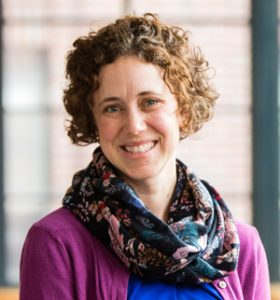School of Public Health Associate Professor Carrie Henning-Smith knows first-hand what aging in America looks like.

“I’ve seen in my own family the complex and profound mix of joy, love, and challenges that comes along with getting older — especially accompanying life transitions such as retirement, loss of a partner or spouse, and changes in health,” says Henning-Smith. “Finding ways to improve quality of life for older adults is, for me, a way to honor the memory of my four grandparents, two of whom lived into their 90’s.”
One key area Henning-Smith researches is health and quality of life in rural areas, where the average age is older than in urban areas. She conducts this research as deputy director of the school’s Rural Health Research Center. In recognition of her expertise, Henning-Smith was recently awarded the 2021-22 Fesler-Lampert Chair in Aging Studies from the SPH Center for Healthy Aging and Innovation. The position is a one-year appointment awarded to a faculty member to support research in aging that enhances and develops their own career in addition to the University’s scholarly capacity in aging science.
“I’m honored to receive the chair appointment,” says Henning-Smith. “It puts me in very good company of past chairs doing important work related to aging and is a meaningful recognition of the work I’m doing to advance health equity for older adults in rural areas.”
During her appointment, Henning-Smith plans to study the role of community context and social infrastructure — places, spaces, and resources that facilitate social connectedness — in supporting social well-being among rural older adults in Minnesota and across the U.S.
“Rural places are home to millions of older adults and can be sources of incredible social support, natural beauty, and sense of community,” says Henning-Smith. “But, rural areas also have unique barriers related to accessing health care, transportation, and housing that can make aging in place difficult for some people.”
Henning-Smith will conduct her study by analyzing a national survey of older adults and through a series of interviews with stakeholders in rural Minnesota. She plans to share her research findings through scientific journals, blog posts/commentaries, the media, and presentations at regional and national conferences. Henning-Smith thinks the findings will be helpful for state- and national-level policymakers as well as for aging services providers and local leaders in rural communities working to improve the health and well-being of older adults.
